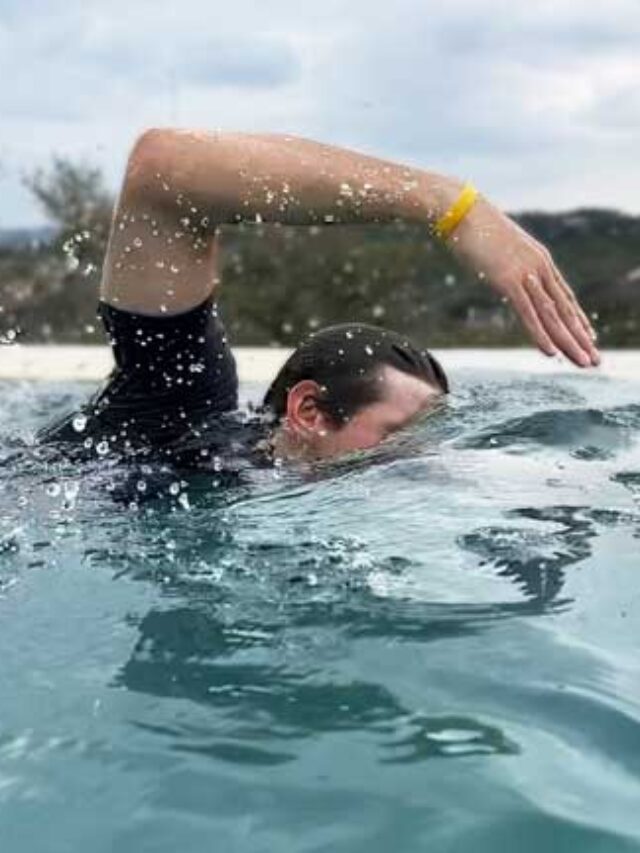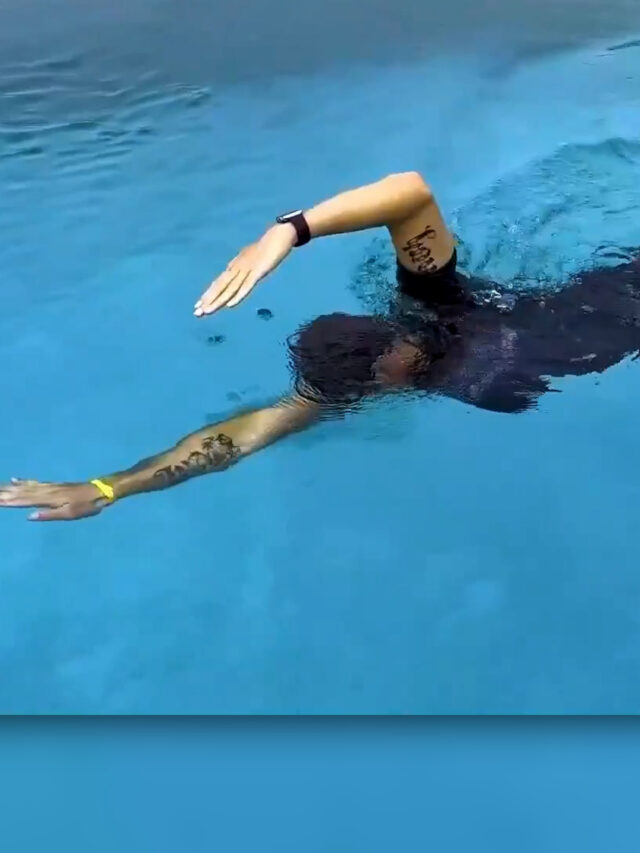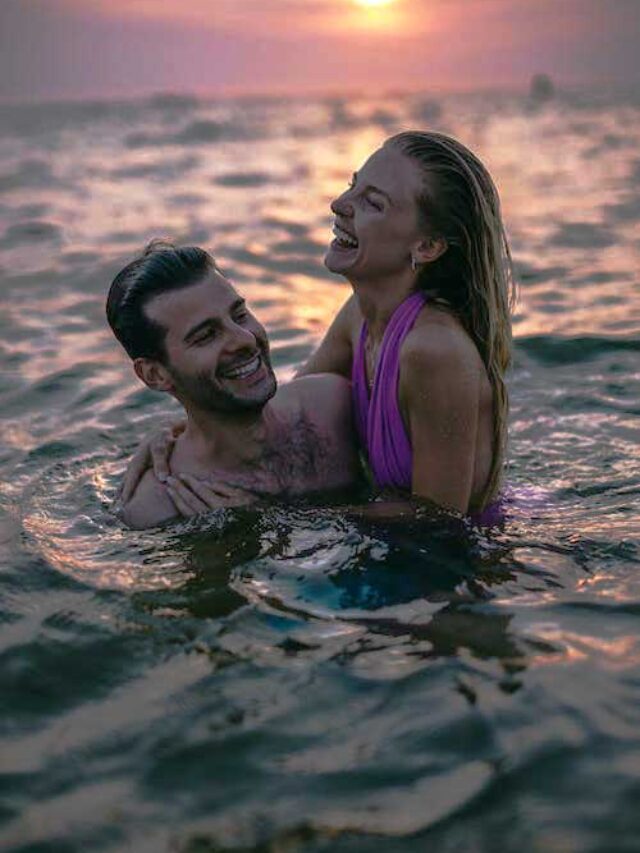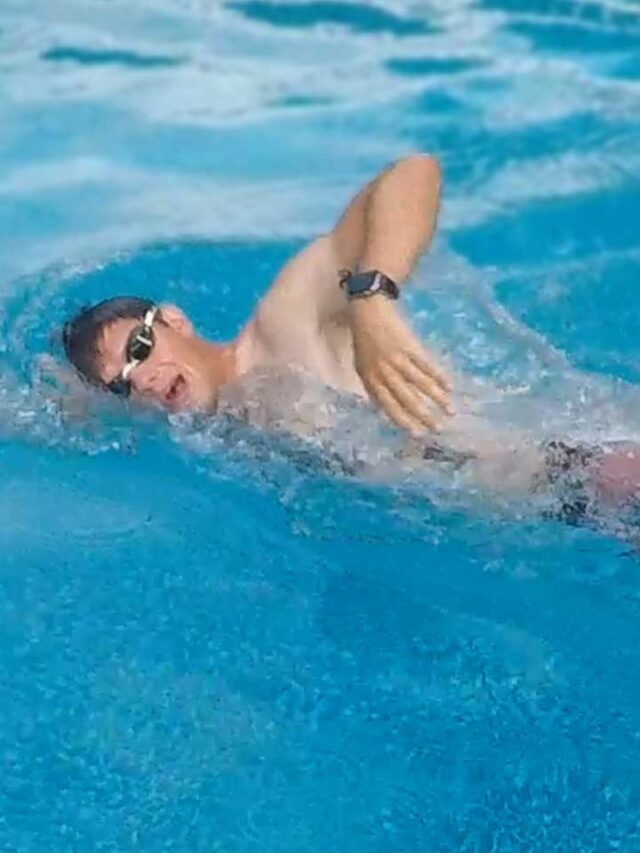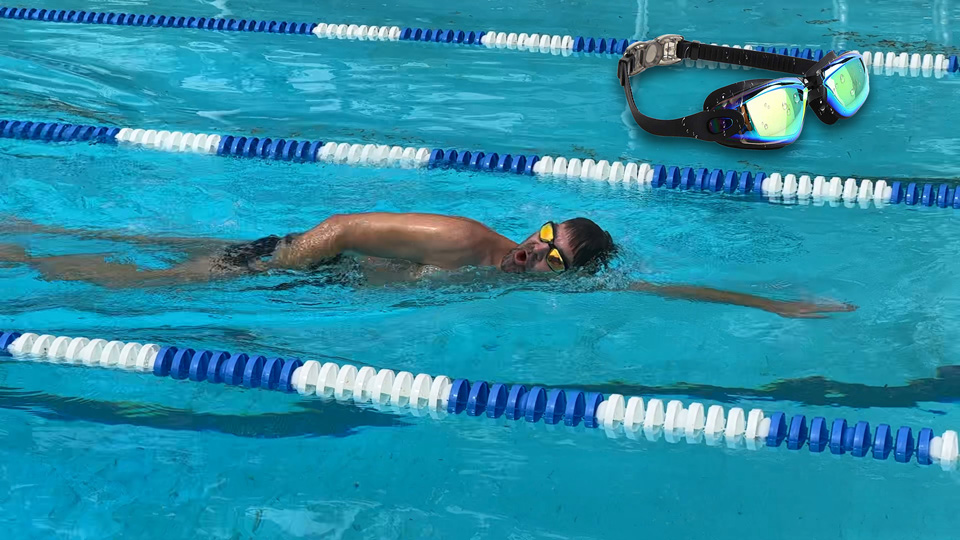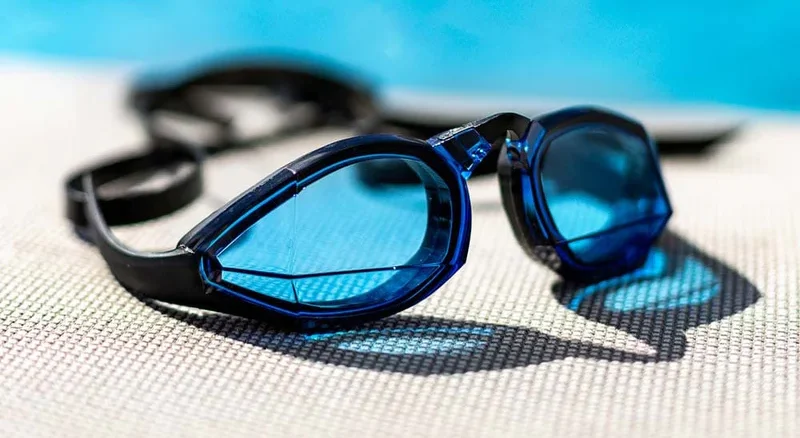Do your eyes turn red and burn after swimming in the pool? This is caused by chloramines. Chloramines can build up in pool when the chlorinated water comes in contact with sweat, urine, dirt, skin cells. The eye irritation will go away on its own but there are ways you can soothe your eyes in the meantime.
What to do when your eyes hurt?
1: Rinse your eyes with tap water

Particles from the pool water may remain in your eyes after swimming. Flushing your eyes with cold tap water will wash away chloramines that other substances that may cause irritation. After rinsing, dry your eyes with a soft towel.
- Flushing your eyes may not provide immediate relief, but it is an important first step because your eyes will remain uncomfortable as long as the irritating substance remains in your eyes.
- Cold water may help reduce inflammation, but war water will also work if you prefer.
2: Use saline eye drops to moisturize your eyes
If your eyes feel dry and itchy after swimming, salt water can help re-moisturize them. Saline is essentially artificial tears that help rehydrate your eyes and make your eyes feel better.
After your swim session, apply a few drops according to instructions.
Tip: Always keep a small bottle of saline solution in your bag.
3: Try cucumber slices
Chill the cucumber in the refrigerator, then cut into two thick slices. Lie down, close your eyes, and place the slice on your eyelids. Cooling cucumbers can soothe irritated eyes and help restore moisture in your eyes.
How to prevent your red eyes after swimming?
We saw some steps you can take if your eyes hurt after swimming. But prevention is better than cure right? Let’s learn the things you need to do before swimming to avoid red eyes after swimming.
1: Wear goggles when swimming

This is the most important thing which you should take seriously. Invest in good quality swimming goggles.
Read: The Guide to Choose the Perfect Swimming Goggles
Swimming goggles are the best prevention method when it comes to chloramine-induced irritation. Goggles create a vacuum between water and your eyes. With goggles on, you can open your eyes underwater without worrying about pain afterwards.
- Make sure the goggles fit properly.
- If you don’t have goggles, then buy them if possible. If you can’t buy them, try keeping your eyes closed as much as possible when swimming.
- Children should always wear goggles to prevent eye injury.
2: Avoid swimming in dirty pools
Does your pool have a strong chemical smell? You may think that it’s a chlorine smell but chlorine has no smell. That strong smell is actually the smell of chloramines, which form when chlorine combines with sweat, urine, saliva, and other organic compounds. A strong-smelling pool is the one that has not been properly treated with chlorine. Look for the following signs:
- The pool has a strong chemical smell
- The water is murky instead of clear
- The swimming pool is slimy and surface have dirt particles
To stay healthy during and after swimming, avoid opening your eyes or mouth while underwater. You need to take a shower after swimming.





